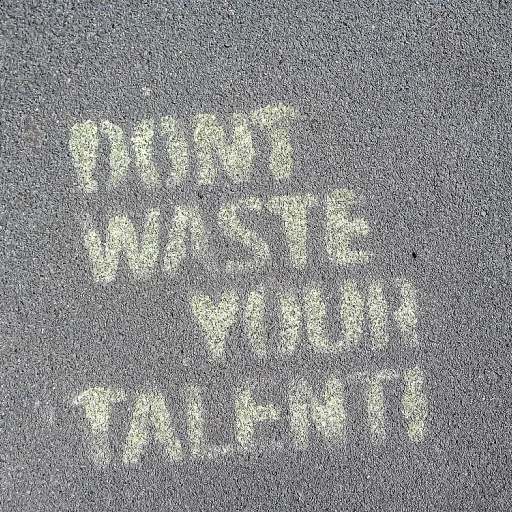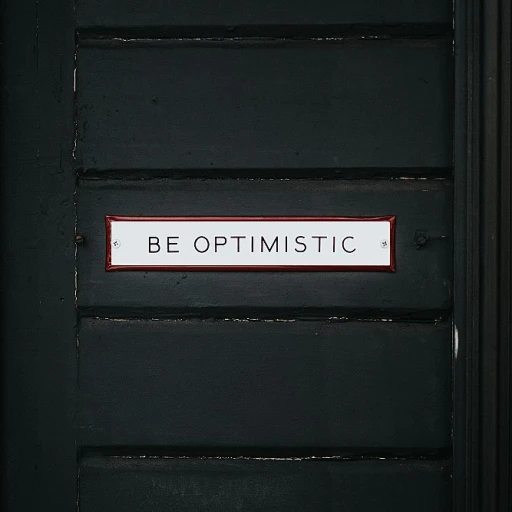
What is a Misdemeanor?
Defining a Misdemeanor in the Context of Employment
Understanding what constitutes a misdemeanor is crucial for both job seekers and employers navigating the complexities of background checks in the tech industry. A misdemeanor is generally considered a less severe criminal offense compared to a felony, yet it remains a serious matter with potential repercussions on employment opportunities. Misdemeanor offenses can range from petty theft to minor drug charges, and while they are not as severe as felonies, they can still appear on your background check.
A criminal record, even one with only misdemeanor convictions, can impact a candidate’s prospects during the hiring process. Employers conducting background checks may encounter several types of records, including criminal records, which detail any past criminal convictions or misdemeanor charges. These records are vetted to assess a candidate’s trustworthiness and suitability for a role.
It is important to be aware of how different states define misdemeanors, as variations in state law affect how such convictions are handled and reported. For instance, some states might have more lenient policies towards misdemeanor expungement processes, allowing for a "clean slate" after a certain period. Others may adhere to the "ban the box" initiative, which prohibits asking about criminal history early in the hiring process.
Anyone with a misdemeanor record should be cognizant of how it might appear in background checks. Companies, especially in tech, often conduct thorough background checks to ensure they hire individuals without histories of behavior that might reflect poorly on the organization. When applying for jobs, it's essential to understand the potential implications of your criminal history and prepare to address it, should it surface during the hiring process.
How Background Checks Work in Tech Hiring
The Mechanics of Screening in Tech Recruitment
In the realm of tech hiring, employers rely heavily on background checks to ensure that potential employees meet the necessary standards and qualifications. A critical part of this process involves examining an individual's criminal record, which includes any misdemeanor offenses, to assess their suitability for a given role. Background checks in the tech industry delve into a candidate's criminal history and aim to unveil any criminal convictions, charges, or records. This scrutiny helps employers make informed decisions about a candidate's potential risk to the company. While the level of depth and detail can vary by state, these screenings typically include searching for any misdemeanor convictions and understanding how they will impact the candidate's employment prospects. Employers often incorporate background checks as a standard part of their hiring process. While they assess job history and technical skills, they also probe into any criminal background to determine if candidates possess a clean slate. This ensures that individuals with a concerning criminal defense history are flagged before an employment offer is extended. Furthermore, it is important for employers in the tech sector to understand the legal guidelines surrounding background checks. Factors such as when a conviction will appear and how it aligns with the "ban the box" initiative can significantly impact hiring decisions. For more intricate details on how specific companies handle their background check procedures, such as Instacart, check out our exploration of Instacart's Background Check Process.Will a Misdemeanor Show on a Background Check?
Misdemeanors on Criminal Background Records
When it comes to background checks in tech hiring, understanding whether a misdemeanor will appear can be crucial for both employers and job seekers. Generally, misdemeanor convictions will show up on a criminal background check unless the record has been sealed or expunged, depending on the respective state laws. It's important to note that while a felony charge stands out more prominently, misdemeanor offenses can also impact the perception of an individual's criminal record.
For job seekers with a misdemeanor conviction, it's essential to understand what will appear on their history record. While the severity of misdemeanors might not be as drastic as felonies, employers may still weigh these records when making hiring decisions. In some states, the "ban the box" movement has encouraged employers to avoid asking about criminal history on initial job applications, thereby allowing candidates to be evaluated based on their skills and qualifications first.
Employers need to know what specific state laws imply regarding the appearance of misdemeanor records on a background check. For example, in specific jurisdictions like California, laws may encourage or require an employer to focus on convictions within a certain period. Meanwhile, others, such as New York state, promote viewing a clean slate, preventing older misdemeanors from affecting employment opportunities.
Legal considerations play a significant role in how background checks are conducted. Depending on the employer's location, compliance with state laws regarding criminal defense and history records is necessary to avoid legal repercussions. Hence, tech companies must remain updated on laws that dictate the extent of disclosing a candidate's criminal history during hiring. By staying informed, employers can better navigate these complexities and enhance their trust and transparency as leaders in their industry.
Successfully addressing background checks requires a nuanced understanding of both criminal justice implications and the shifts in hiring tech. Job seekers and employers alike benefit from clarity and transparency in how misdemeanor offenses are managed during the recruitment process, promoting a fairer employment landscape for those with misdemeanors on their records.
Legal Considerations for Employers
Employment Laws and Employer Responsibilities
When it comes to evaluating criminal backgrounds, particularly misdemeanor offenses, employers must navigate a web of legal considerations to remain compliant. It is crucial to note that employment laws can vary significantly by state, influencing how employers handle misdemeanor convictions during the hiring process.
Under the Fair Credit Reporting Act (FCRA), employers are required to obtain written consent from candidates before conducting a background check. Additionally, they must provide a clear disclosure if hiring decisions are made based on the information contained in the criminal records. This ensures transparency and gives applicants the opportunity to dispute any inaccuracies that may exist in their criminal history.
Many states have enacted "ban the box" laws aimed at increasing employment opportunities for individuals with criminal convictions, including misdemeanors. These laws typically prohibit employers from inquiring about an applicant's criminal history until later in the interview process, allowing candidates to be evaluated based on their qualifications first.
Expungement laws also play a pivotal role, as they enable individuals to seal certain misdemeanor records from public view. Depending on the state, an expunged record may not appear during an employment background check, potentially improving job prospects. Employers should understand these laws to ensure they do not inadvertently consider sealed records.
Neglecting to comply with relevant employment legislation can result in legal consequences. Employers should work with legal counsel familiar with local regulations to ensure their hiring processes are compliant and non-discriminatory. By understanding the legal landscape, companies can create fair hiring practices that both protect their interests and respect the rights of job seekers with past misdemeanor offenses.
Impact on Employment Opportunities
Evaluating the Effect of Misdemeanors on Job Chances
Understanding how misdemeanor convictions impact employment opportunities is crucial for both job seekers and employers. Generally, a misdemeanor record appearing on a background check can influence an employer's decision to hire a candidate, often depending on the nature of the job and the severity of the offense. Here’s how misdemeanor offenses can affect job prospects:- Nature of the Role: Some roles that involve handling money, confidential information, or sensitive positions may have stricter scrutiny around an applicant's criminal history, including records of misdemeanors.
- Relevance and Timing: Employers may assess the relevance of the misdemeanor conviction in relation to the job duties. For instance, a driving-related offense might be more pertinent to a transportation role. Additionally, misdemeanors that occurred a long time ago may be viewed as less significant than recent charges.
- State Laws and Protections: Legal frameworks, such as the "ban the box" initiative, can prevent employers from asking about criminal convictions early in the recruitment process. However, these laws vary by state, potentially affecting criminal defense strategies and opportunities for employment.
- Company Policy: Each employer might have different policies regarding criminal background checks. Some might provide candidates with the chance to explain their criminal history record during the hiring process, allowing applicants to share their context or discuss any expungement efforts.
While a misdemeanor record can be a hurdle for job seekers, understanding the nuances of how it appears on background checks and staying informed about legal changes can help navigate employment challenges effectively.
Best Practices for Employers and Job Seekers
Strategies for Employers and Job Seekers Navigating Misdemeanors
For both employers and job seekers, understanding how misdemeanor convictions and criminal records impact employment opportunities is essential. Best practices help ensure fair consideration and compliance with the law.For Employers:
- Understand State Laws: Familiarize yourself with state-specific laws that govern the use of criminal background checks. This includes regulations on what criminal history records you can use and any restrictions under "ban the box" initiatives.
- Relevance of Misdemeanors: Evaluate whether a misdemeanor is relevant to the job in question. Consider if the offense will impact the individual's ability to perform specific job duties or affect the workplace safety and environment.
- Consistency in Background Checks: Implement a consistent process when conducting background checks to ensure fair treatment of all applicants. This might involve setting clear criteria for assessing criminal history.
- Legal Compliance: Ensure your employment practice complies with federal laws and regulations, such as the Fair Credit Reporting Act (FCRA) and Equal Employment Opportunity Commission (EEOC) guidelines.
- Communication and Transparency: Foster open communication regarding how background information will be used in hiring decisions, ensuring transparency in the employment process.
For Job Seekers:
- Be Honest: Disclose any criminal background, including misdemeanor convictions, honestly when required. Many employers value transparency and integrity.
- Know Your Rights: Understand your rights regarding background checks, such as your ability to dispute inaccurate records and seek expungement of eligible offenses for a clean slate.
- Highlight Rehabilitation: Emphasize any rehabilitation efforts or personal growth since the misdemeanor offense. This can help to demonstrate reform and readiness for responsibility.
- Prepare for Interviews: Practice discussing your criminal history and be prepared to explain how you have addressed the circumstances. Focus on your suitability and commitment to the prospective role.
Both employers and job seekers should seek to foster a fair and equitable employment environment. By understanding the impact of misdemeanor charges and convictions, informed decisions are made that benefit both individuals and organizations.













